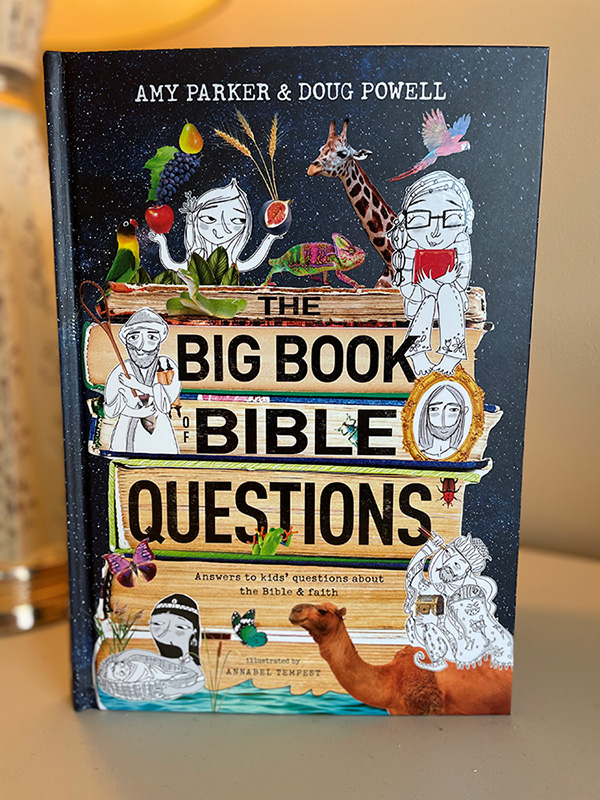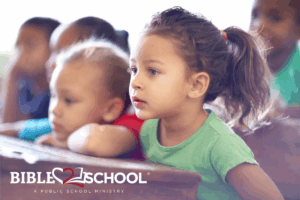This guest post was written by Linda Howard, Associate Publisher at Tyndale Kids.
Bible Literacy is more than the ability to remember the story of David and Goliath or the covenant God made by displaying a beautiful rainbow in the sky after the flood or other amazing Bible stories.
Knowing the stories included in the Bible is important, but true biblical literacy is the process of learning who God is through His Word. It’s developing a love for our creator and a desire to know what brings Him joy. He has given us a beautiful road map to His heart through Scripture, but we often veer off the path and seek Him using shortcuts that take us away from the Bible.
Many Christians today base their view of faith on devotionals, podcasts, and other fast-track methods instead of going directly to the source. Let me be clear—podcasts and devotionals can be invaluable tools for growing in faith, and knowing individual stories from the Bible is an important part of understanding God’s Word.
The issue comes when we don’t have a holistic view of Scripture. God himself is the main character of the Bible. The people He chooses to use are important for us to know because they help us see how we can live out biblical truths, but they are not the point. Their stories are included to show us how to be in relationship with God. When we take the focus off him and place it on the people in the Bible, we miss the truths He wants us to learn.
So how do we teach our children to understand God’s grand story? How can we instill a love of Scripture in their hearts?
Below are some ways I’ve found to be helpful both in the classroom and at home.
Listen to Scripture with children.
Find a dramatized version of the Bible, and spend time listening to professional readers tell God’s story in an engaging way. You can incorporate this into your Bible story time in the classroom, and parents can make it part of their bedtime or dinner time routine at home.
Make Scripture memory a regular and fun time for kids.
Give kids a reason to want to memorize Scripture—a chart they can fill up with stickers with a prize at the end, or other experiences that will motivate them.
Talk through the meaning and context behind the verses your children are reading or memorizing.
If the kids in your ministry are memorizing John 3:16, spend time talking about the verse and its background. Discuss some of the following questions: Why is this verse important? How does it fit into the larger narrative of the Bible? What was happening culturally at the time this verse was written?
Books like The Big Book of Bible Questions can help you fill in the additional information and provide the bigger picture behind Scripture. If you can, find ways to provide resources to parents that expand their understanding of God’s Word so they feel competent when they are talking to their kids at home.
Model a love of Scripture.
Bring your personal Bible with you on Sunday mornings, read the Bible in front of kids, and talk about what you are learning. As they see you investing in time with your heavenly Father, they will want to do the same.
Create opportunities for kids to act on the lessons they learn from their Bible study and memorization.
Collect money as a class to send a gift to a missionary, encourage parents to take a meal to their neighbors, etc. Most kids are kinesthetic learners. Giving them an opportunity to physically act on what they learn will cement the truths in their hearts and minds.
The more kids can see a connection between their lives and the Bible, the more they will understand and embrace its importance. The more they read it, the more they will fall in love with it and want to know more.
What could be more exciting than raising up the next generation to be hungry for God’s Word and to become mentors for those who follow behind?

About Linda
Linda Howard is the associate publisher for children and youth at Tyndale House Publishers. She brings an extensive background working with children and children’s products to her role, including eight years of working with Focus on the Family’s beloved and bestselling Adventures in Odyssey brand, overseeing the successful rebranding and relaunch of the Faith That Sticks product line, fourteen years of teaching preschool, and eight years serving as assistant director for the Community School of the Arts at Wheaton College. Linda’s enthusiasm and passion for bringing children to a deeper understanding of Christ are what drives her acquisitions choices. Helping authors to publish and shape products that start children on a path to spiritual maturity is a responsibility she takes seriously, and she is grateful for the opportunity to serve.







